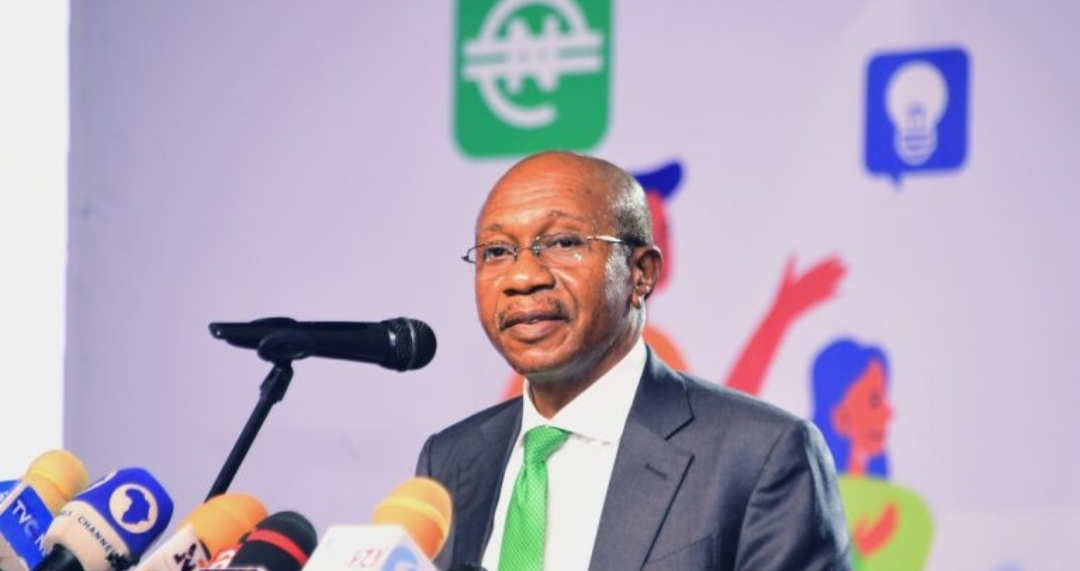Former Central Bank of Nigeria (CBN) Deputy Governor Kingsley Obiora has testified that the controversial naira redesign implemented under Godwin Emefiele’s leadership differed significantly from what former President Muhammadu Buhari had originally approved.
The dramatic testimony, delivered via zoom before the Federal Capital Territory High Court in Maitama, has added a new dimension to the ongoing trial of former CBN Governor Emefiele. As the Economic and Financial Crimes Commission’s fifth witness, Obiora’s revelations have cast fresh light on the contentious currency redesign that sparked widespread chaos across Nigeria during its implementation.
Speaking under examination by prosecution counsel Rotimi Oyedepo SAN, Obiora, who served as Deputy Governor in charge of policy, made the startling disclosure after comparing the President’s original approval with the currency that was eventually circulated. “The approval by the President was different from what was eventually produced,” Obiora stated unequivocally, his testimony adding weight to growing questions about the transparency of the redesign process.
The former deputy governor, who served at the CBN for over seven years, provided detailed insight into how the controversial policy emerged. According to his testimony, the initial discussion of the redesign occurred in an unusual setting – during an e-naira anniversary event in Lagos on October 25, 2022. Obiora recounted how Emefiele gathered all four deputy governors for an impromptu huddle to inform them of the plan, a move that immediately raised red flags for the experienced banker.
My personal reaction was that the event itself may not be the appropriate place to announce such a major policy,” Obiora testified, revealing his early concerns about the hasty approach to such a significant monetary decision. He described how he had advocated for more time to study and refine the policy, suggestions that apparently went unheeded.
The court heard how events rapidly unfolded following that initial announcement. The very next day, October 26, 2022, Emefiele brought the plan before a formal meeting of the Committee of Governors (COG), a key decision-making body comprising the governor, four deputy governors, and the director of corporate services. According to Obiora, Emefiele claimed to already have secured presidential approval for the policy.
Perhaps most tellingly, Obiora’s testimony revealed that the CBN Board, which typically provides crucial oversight and policy direction, was only formally informed of the redesign in mid-December 2022, months after the policy had been announced and implementation had begun. This timeline raises serious questions about the adherence to proper institutional processes in implementing such a far-reaching monetary policy.
During cross-examination by defense counsel Olalekan Ojo SAN, additional details emerged about the board’s involvement. While Obiora confirmed that the December board meeting “conforms with the naira notes currently in circulation,” he emphasized that the board’s role was limited to endorsing decisions already made by the COG rather than initiating or substantially shaping the policy.
Interestingly, Obiora noted that despite the apparent deviation from the approved designs, there had been no directive or complaint from former President Buhari about the redesign. This detail adds another layer of complexity to understanding how such a significant deviation from presidential approval could have occurred without immediate intervention.
The former deputy governor’s testimony also touched on his previous experience with currency redesign at the CBN. He referenced the 2014 redesign of the N100 note during his tenure as Special Adviser, though he clarified his limited involvement in that process, stating, “I was not part of it, but I was at the bank then.”
Following Obiora’s testimony, Justice Maryann Anenih adjourned the matter until December 4, 2024, and January 21, 2025, for the continuation of the trial. The case continues to draw significant attention as it unravels the internal workings of one of the most controversial monetary policies in recent Nigerian history.
This latest revelation adds to the growing body of evidence being examined in Emefiele’s trial and raises serious questions about decision-making processes within Nigeria’s apex bank during his tenure. The implications of these disclosures extend beyond the courtroom, potentially influencing future policy implementation procedures and oversight mechanisms at the Central Bank of Nigeria.



